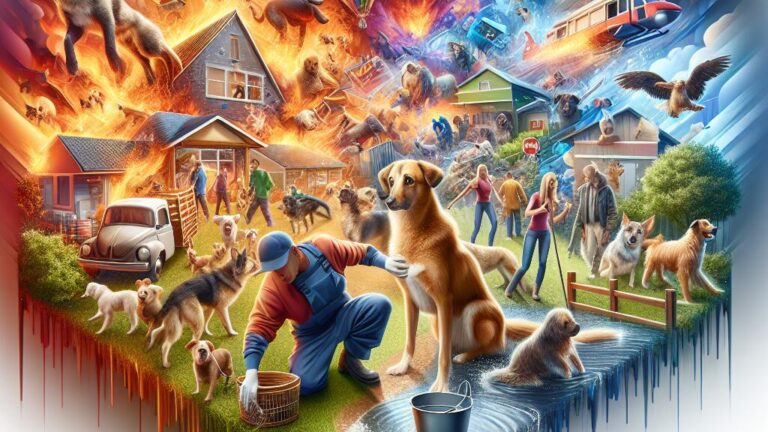Adopt a Rescue Dog
Health Considerations for Adopted Dogs
Bringing a rescue dog into your life can be an exhilarating journey, yet it’s often fraught with a tapestry of health considerations that new pet parents must navigate. Picture this: many of these pups come equipped with a shroud of mystery surrounding their medical histories—pre-existing conditions or lurking illnesses might be waiting in the wings, demanding immediate attention. So, right after you welcome your furry friend home, don’t delay; schedule that all-important comprehensive veterinary examination! This pivotal visit gives the vet the chance to dive deep into assessing your dog’s overall health, unraveling vaccination needs and pinpointing any essential preventative treatments for those pesky parasites or other common woes.
But wait! There’s more to ponder on this path of responsible ownership: preventive care looms large on the horizon. Regular trips to the vet are not just recommended—they’re vital for keeping tabs on your pup’s well-being and ensuring that vaccinations remain current. And let’s not forget about spaying or neutering—it should absolutely factor into your overarching health management strategy for Fido.
Now onto nutrition—the cornerstone of canine vitality! It’s imperative to arm yourself with knowledge about what constitutes an ideal diet for your rescue dog because some may have unique dietary requirements dictated by their age, breed, or specific health issues they bring along from their past lives. A well-balanced diet doesn’t just fill bowls; it wields immense power over energy levels, temperament shifts, and long-term wellness outcomes.
Regular Vet Visits and Preventative Care
Regular veterinary check-ups—oh, how crucial they are for the well-being of your newly adopted rescue pup! These visits aren’t just a formality; they’re your golden ticket to catching any sneaky health problems before they escalate. Picture this: routine examinations that encompass vaccinations, parasite screenings, and those all-important dental health assessments. Sticking to a steady vet schedule isn’t merely a suggestion; it’s an investment in ensuring your furry friend receives essential preventative care that can dramatically elevate their quality of life.
But wait, there’s more! Preventative care stretches far beyond just those regular vet appointments. You need to keep yourself clued in about the vaccinations tailored to fit your dog’s age, breed, and lifestyle quirks. Don’t forget heartworm prevention and flea-and-tick treatments—they’re like armor against unwanted invaders—and proper dental hygiene is non-negotiable too! Plus, monitoring your dog’s weight and diet? That’s pivotal in sidestepping obesity-related complications. By taking an informed approach toward your rescue dog’s health journey, you’re not just prolonging their life; you’re crafting a happier existence together!
Nutrition and Diet for Your Rescue Dog
A well-rounded diet is absolutely vital for the health and happiness of your rescue dog. Digging into their specific nutritional needs can truly elevate their vitality and energy levels to new heights! The right food choices not only fortify their immune system but also help keep them at a healthy weight, ushering in an overall sense of well-being. Yet, as you embark on this journey, it’s crucial to factor in elements like age, size, and any particular health concerns your furry friend might be grappling with when crafting their culinary plan.
When selecting food options, aim for those high-quality gems that proudly list real meat as the star ingredient upfront. Steer clear of those products laden with excessive fillers and artificial additives—your pup deserves better! A chat with a veterinarian can unveil tailored insights designed specifically to cater to your rescue’s unique dietary needs. And remember: transitioning to a new diet should unfold gradually; this gentle approach allows your dog’s digestive system ample time to adapt without unnecessary discomfort or upheaval.
Choosing the Right Food for Optimal Health
Picking the right food for your rescue dog isn’t just important; it’s a cornerstone of their well-being. It’s like piecing together a puzzle—understanding their unique dietary needs shaped by age, breed, and health quirks can steer you in the right direction. Seek out that golden nugget: high-quality commercial dog foods where meat takes center stage as the main ingredient. After all, dogs thrive on protein to keep those muscles strong and energy levels buzzing.
But wait! Don’t stop there. Think about adding whole grains or vibrant veggies into the mix for extra carbs—nature’s little gifts! Shun anything laden with fillers, artificial additives, or preservatives; these culprits can wreak havoc on health over time.
And here’s a pro tip: consult your veterinarian! They’re like personal trainers for diets when it comes to your dog’s unique needs. Keep an eye on that weight scale too; adjusting portions is key in keeping obesity at bay. Spice things up with variety—a few healthy treats here, some fresh fruits or crunchy veggies there—to make mealtime an adventure while packing in essential nutrients.
Oh, and remember this crucial tidbit: transitioning slowly between diets is a must to avoid any gastrointestinal upheaval! Embracing this thoughtful approach to nutrition could profoundly elevate your rescue dog’s quality of life—it’s not just feeding; it’s nurturing happiness!
| Food Type | Main Ingredient | Benefits | Recommended Brands |
|---|---|---|---|
| Dry Kibble | Chicken | High protein, promotes muscle health | Blue Buffalo, Wellness |
| Wet Food | Beef | Moisture-rich, enhances hydration | Hill’s Science Diet, Nutro |
| Grain-Free Food | Fish | Supports skin and coat health | Orijen, Merrick |
| Homemade Meals | Lean Turkey | Customizable, free from additives | N/A |
Building a Strong Bond with Your Rescue Dog
Connecting with your rescue dog—oh, what a profoundly rewarding journey it can be! It’s in those moments of shared experience that magic happens. Picture this: daily strolls under the open sky, spirited games of fetch where the world melts away, or those focused obedience training sessions where both you and your pup learn together. Each positive reinforcement during these interactions? Pure gold for building trust! The more joy your dog associates with you, the tighter that invisible bond will weave around your hearts.
But let’s not overlook the backbone of this relationship—routine and structure are essential threads in this tapestry you’re creating. Regular feeding times, timely bathroom breaks—the rhythm becomes a comforting lullaby for your furry friend. And as they begin to find their footing in their new abode, remember: patience is not merely a virtue; it’s an absolute necessity! Take a moment to delve into their unique quirks and personality traits—it’ll illuminate paths to connection you never knew existed. In understanding them deeply, you’ll forge a mutual bond that’s nothing short of extraordinary.
Engaging Activities to Strengthen Your Relationship
Spending quality time with your rescue dog isn’t just a nice idea; it’s absolutely vital for weaving that unbreakable bond. Picture this: engaging in spirited games of fetch, navigating the exhilarating challenges of agility training, or even diving into the basics of obedience classes! Each moment spent together fosters trust and deepens your connection like a rich tapestry woven from shared experiences. And let’s not forget those regular outdoor escapades—hiking through lush trails or splashing around at the beach—not only do they offer essential exercise, but they also ignite your dog’s curiosity and stimulate their ever-active mind. These adventures become a language all their own, allowing you both to communicate in ways words can never capture.
Now, sprinkle some playtime into the mix—it’s like adding magic dust to your relationship! Interactive toys—think puzzle toys that challenge little minds or tug ropes that invite spirited competition—spark teamwork while enriching those mental faculties. And who could overlook those simple yet profound moments? Grooming sessions where gentle strokes speak volumes or quiet cuddles that wrap you both in warmth contribute immensely to building that emotional fortress—a sanctuary filled with security and affection between you and your furry friend. It’s these cherished instances that carve out lasting memories, crafting an extraordinary journey towards a deeply fulfilling companionship!
Common Challenges and How to Overcome Them
Welcoming a rescue dog into your home can be an immensely fulfilling journey, yet it often unfurls a tapestry of unique challenges. Picture this: many adopted dogs come bearing the weight of past traumas, which might manifest as anxiety or fear—those telltale signs that something deeper lies beneath. It’s crucial to spot these behaviors early on; they’re like whispers from their past begging for understanding. Establishing a consistent routine can weave a safety net of security for your new furry friend, fostering trust in the unpredictable world around them.
But hold on! As you navigate this landscape, prepare yourself for potential behavioral quirks—perhaps aggression rears its head or incessant barking fills the air. The key? Pinpointing those triggers is where the magic begins—a detective’s approach to unraveling their emotional tapestry! Embrace positive reinforcement techniques—they’re like little rays of sunshine that can illuminate even the darkest behavior patterns. Seeking guidance from a professional trainer or behaviorist could unveil personalized strategies tailored just for your pup’s needs.
And let’s not forget about keeping that line of communication wide open with your veterinarian; after all, ensuring any lurking health issues are addressed is paramount in this intricate dance between healing and companionship. With patience as your ally and love as your guide, watch how gradually they adapt at their own pace while you both embark on this transformative adventure together!
Managing Anxiety and Behavioral Issues
Rescue dogs often come with a tangled past, one that can weave threads of anxiety and behavioral quirks into their very being. It’s crucial to unearth the triggers—those unseen specters that instill stress or fear within them. By keenly observing how they respond to different situations, you can glean invaluable insights into their emotional landscape. Crafting a safe haven at home becomes paramount; it’s here where your furry friend can finally let down their guard and feel enveloped in security. When introducing new experiences, take it slow—like a gentle breeze sweeping through—and always keep an eye on their comfort levels.
Training is not just important; it’s the cornerstone of navigating anxiety and behavior challenges. Think positive reinforcement: rewarding good behavior with treats isn’t merely an incentive—it’s about building calmness and confidence brick by brick! Sometimes, consulting with a professional dog trainer or behaviorist becomes essential—they possess tailored strategies like keys unlocking doors to better understanding. Socialization? Absolutely vital! Gradually exposing your pup to other animals and humans helps cultivate that elusive confidence we all seek for our beloved companions. Remember, patience is more than a virtue here; it’s the very essence of progress, which tends to unfold at its own pace—a journey worth every moment spent together.
Community Resources for Rescue Dog Owners
Owners of rescue dogs can truly unlock a treasure trove of benefits by tapping into local organizations dedicated to support and resources. Picture this: in many neighborhoods, shelters and rescue groups spring forth like hidden gems, offering an array of services—think training classes that sharpen skills, behavioral consultations that decode quirks, and health assessments available at wallet-friendly rates. But wait—there’s more! These vibrant organizations often throw events designed not just for the pups but for their humans too, creating perfect opportunities to mingle with fellow pet enthusiasts right in your backyard.
And let’s not overlook the digital realm—a bustling hub where online forums and social media groups come alive with activity. Here lies a goldmine for owners eager to swap tales, pose burning questions, or glean wisdom from those who’ve navigated similar rocky paths. Engaging in these virtual communities isn’t just about sharing knowledge; it cultivates bonds that foster camaraderie among dog lovers while also unveiling additional avenues for tackling the distinctive needs of our beloved rescue companions.
Finding Support Through Local Organizations
In many neighborhoods, vibrant organizations spring up to champion the cause of rescue dog owners. These dynamic groups often roll out a treasure trove of resources—think training sessions that spark transformation, socialization events buzzing with energy, and workshops delving deep into the art of canine care. Immersing yourself in these activities can unveil invaluable strategies for navigating the myriad challenges that come with rescue dogs, nurturing a profound understanding between you and your furry companion.
Local animal shelters and dedicated rescue factions are usually brimming with information on adopting, fostering, and even volunteering opportunities just waiting to be explored. Connecting with fellow dog lovers in your vicinity weaves a tapestry of community and camaraderie. As you swap stories and share tips, you’ll find solace in knowing you’re not alone; this exchange can smooth the path for both you and your newly adopted canine friend while enriching the bond that’s blossoming between you two.
- Engage in local training programs to enhance obedience and behavior.
- Attend socialization events to help your dog interact with other pups.
- Participate in workshops focused on nutrition and health care for rescue dogs.
- Volunteer at nearby shelters to gain experience and support the community.
- Join social media groups or forums dedicated to rescue dog parenting.
- Share your experiences and tips with fellow dog owners to foster a sense of community.
- Seek out support groups for challenges unique to rescue dog ownership.
Conclusion
Bringing a rescue dog into your life can be an adventure like no other—wildly rewarding, unexpectedly challenging, and bursting with joy. Picture this: you’re opening not just your home but also the very depths of your heart to a pup in need. It’s more than just offering them a second chance; it’s about transforming both their lives and yours in ways that are often unimaginable! Sure, the road may have its bumps—who doesn’t love a little chaos?—but the sheer delight found in companionship, unwavering loyalty, and boundless love usually eclipses any hurdles you might face along the way.
As you dive into this beautiful journey together, keep close at hand the wealth of community support and resources waiting to guide you both through thick and thin. Local organizations can become invaluable allies as they offer insights galore and connect you with fellow dog lovers who’ve walked similar paths. Whether you’re tackling health concerns or behavior quirks—or simply figuring out how to create that perfect bond—tapping into these resources will undoubtedly elevate your experience as a dedicated pet owner filled with affection for your newfound furry friend!
FAQS
What initial health checks should I consider for my newly adopted rescue dog?
Ah, the journey begins! It’s crucial to book that vet appointment soon after bringing your furry friend home. You’ll want a thorough health examination—think vaccinations galore and a chat about preventative measures. Flea and tick prevention? Yes, please! Heartworm testing? Absolutely essential! And if your pooch hasn’t been spayed or neutered yet, let’s talk about that too.
How can I determine the best diet for my rescue dog?
Here’s where it gets personal! Your veterinarian is your go-to guru. They can help decode your dog’s unique nutritional needs based on their age, size, activity level, and any pesky health concerns lurking in the background. Seek out high-quality dog food—no fillers or artificial nonsense here; we’re talking real ingredients!
What activities can I do to strengthen my bond with my rescue dog?
Oh, there are countless ways to weave those precious threads of connection! Regular walks under the open sky, exhilarating play sessions filled with joy (and maybe some slobber), engaging training classes—the list goes on! Even something as simple as grooming can work wonders. The magic truly happens when you spend quality time together while showering them with positive reinforcement; trust me—it builds bonds like nothing else.
What are some common behavioral issues in rescue dogs, and how can I manage them?
Ah yes—the challenges many face include anxiety shadows creeping in from past experiences or fearfulness that tugs at their hearts. Separation anxiety might rear its head too. It all starts with identifying what triggers these behaviors and creating a safe haven for your pup to retreat into when things get overwhelming. Consider embracing positive reinforcement training methods—or perhaps seeking wisdom from a professional trainer or even guidance from a vet could be beneficial!
Where can I find support and resources for rescue dog owners in my community?
Look no further than local havens of hope—the animal shelters brimming with compassion, dedicated rescue groups overflowing with knowledge, and pet stores ready to offer valuable insights! Dive into online forums buzzing with fellow pet enthusiasts or connect through social media groups designed specifically for sharing advice on care and training of our beloved canine companions—all within reach thanks to community events focused on pet welfare!







